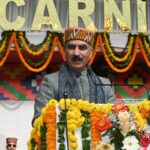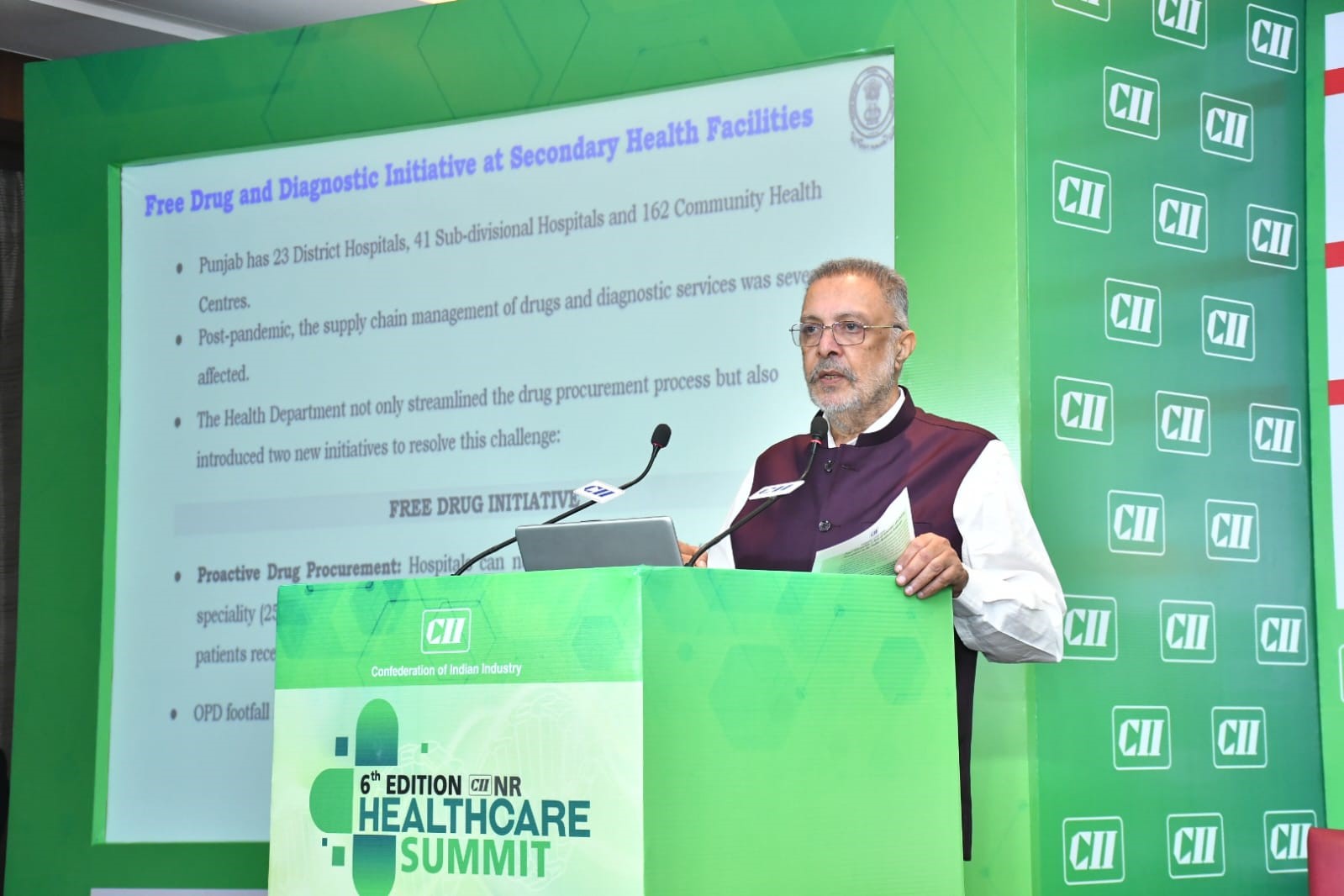The North News
Chandigarh, April 8
Punjab’s Health and Family Welfare Department has issued a public advisory ahead of an expected heatwave, urging citizens to take extra precautions to avoid health risks as temperatures climb.
The move follows directions from Health Minister Dr Balbir Singh amid warnings from the India Meteorological Department (IMD), which has forecast severe heat conditions in the region. A heatwave, according to the IMD, is declared when temperatures in the plains reach 40°C or higher, or when there is a 4.5°C to 6.4°C departure from seasonal norms.
“These soaring temperatures severely impact the body’s ability to regulate internal temperature, leading to serious heat-related illnesses,” said Dr Hitinder Kaur, Director, Health and Family Welfare.
The state’s health infrastructure has been placed on high alert. Civil Surgeons across districts have been instructed to ensure all facilities — from District Hospitals to Community Health Centres (CHCs) and Primary Health Centres (PHCs) — are equipped to handle heat-related emergencies. Dedicated beds have been earmarked, and refresher training has been conducted for medical officers and specialists to ensure timely diagnosis and management of symptoms.
Further, paramedical staff, including ASHA workers, are being sensitised to spread awareness and ensure last-mile delivery of health advisories.
Dr Kaur urged citizens to monitor local weather updates via radio, television and newspapers, or through the IMD’s website at http://mausam.imd.gov.in.
“Special care must be taken for vulnerable groups — newborns, young children, the elderly, pregnant women, daily wage labourers, people with obesity, mental illness, or heart-related conditions,” she added.
The advisory underscores the state government’s emphasis on proactive public health preparedness as climate-related challenges become more acute.
DO’s AND DON’Ts TO PREVENT HEAT STROKE
DO’s:
- Do outdoor work in the cool part of the day i.e. morning and evening
- Drink water every half an hour, even if not thirsty. People with epilepsy or heart disease, kidney or liver disease who are on a fluid-restricted diet should consult a doctor before increasing their water intake.
- Wear light coloured full sleeved clothing when working outdoors. Try to wear only cotton clothes in summer
- Use umbrella, hat, towel, turban or dupatta to cover your head from direct sunlight
- People who work in the sun should rest in the shade or keep a wet cloth on their head to maintain the body temperature
- Always carry water when going out in the sun
- Eat seasonal fruits and vegetables, such as watermelon, oranges, grapes, cucumbers and tomatoes, as they are high in water content
- Offer water to people who come to your home or office for delivery of goods or food
- Use and increase the intake of homemade drinks like lemon water, lassi, coconut water
- Wear sunscreen to protect your skin and dark goggles to protect your eyes
- Eat small meals and eat more often
- Bath frequently in cold water
- Adding straw on roofs or growing vegetables keeps the temperature low
- If exercising, start slowly and eventually increase it over a few days to adjust to the rising body temperature
- Traditional remedies like onion salad and eating raw mango with salt and cumin seeds can prevent heat stroke
DON’Ts
- Do not go out barefoot, always wear shoes or slippers when going out in the sun.
- Avoid going out in the sun, especially between 12 noon to 3 pm.
- Avoid cooking during peak summer hours, keep doors and windows open to ventilate the kitchen area well.
- Avoid alcohol, tea, coffee, and carbonated and extra-sweetened beverages, as they actually deplete body fluids.
- Avoid fried food, do not eat stale food.
- Do not leave children or pets in a locked vehicle.
SYMPTOMS WHICH REQUIRES IMMEDIATE MEDICAL ATTENTION
- Altered mental balance with restlessness, difficulty in speaking, irritability, ataxia, slurred speech, slurred speech, seizures etc
- Hot, red and dry skin
- When Body temperature rises to 40 degrees or higher
- Severe headache
- Anxiety, dizziness, fainting and mild headache
- Muscle weakness or spasms lasting more than an hour
- Vomiting (nausea)
- Rapid heartbeat
- Shortness of breath WHAT TO DO:
Remember, if you find someone with a high body temperature who is unconscious, confused, or has stopped sweating, call the 104 medical helpline immediately. While waiting for the ambulance, begin cooling them by moving them to shade, fanning them, and, if possible, applying cool water to large areas of the skin. Acting quickly can save a life.
















